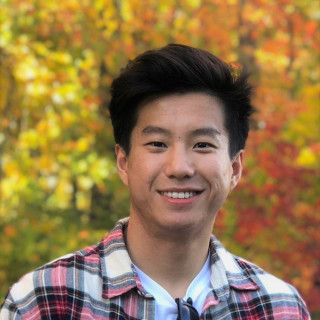Before I became a medical student, I was a writer. In fact, I fell in love with writing long before I even learned about medicine. My family moved around frequently when I was young, and as an only child, I never had anyone to talk to for very long. So, I turned inward, spending many late nights perched on my windowsill scribbling in book margins. Writing was my personal haven. I could fashion worlds to my liking, explore new emotions without fear of judgment.
Over time, as I received recognition for my work, my relationship with writing evolved from something deeply personal to something I could share with the world. Beyond that, it became a medium of healing. I found that discussing and sharing stories in writing workshops created threads of connection between complete strangers, allowing for brief but powerful spaces of intimacy and vulnerability.
When I entered medical school, I swore to myself that I’d never let go of writing’s potential to heal and connect. After all, I still dreamt of being a writer. But clerkship year provided unexpected surprises. Instead of fiction, I was reading physiology textbooks. Instead of poetry readings, I was listening to microbiology lectures. And instead of writing poems and short stories, I was writing histories and physicals. Soon, the gap between my writing and medical selves started to widen.
With these changes, those feelings incurred by writing that I once lived for — the skin-tingling awe mixed with gentle hues of connection — became distant memories.
Halfway through the year, I started having difficulty sleeping and increased anxiety. I began neglecting meals, staying in my room instead of socializing, and falling behind on my studying. There wasn’t a clear trigger for this depression. I never experienced overt mistreatment. But as someone who was continually an afterthought in a very hierarchical hospital system, I couldn’t help but start to feel neglected. The long hours of listlessly waiting and the limitations in what I was able to contribute started to erode my patience and self-esteem. Soon, patient interviews started to feel like a burden. Asking questions and giving presentations felt like a waste of time. I even began questioning if medicine was the career for me.
To mitigate these resentments, I did all the “right” things. I sought a therapist and mental health support. I shared my worries with trusted friends and family. But nothing was really working. I felt myself receding to a darker place.
Then one night, instead of studying, I opened a blank Word document and started writing. Just an open and honest free-write. When I finished, two hours had passed without any break in focus. I didn’t notice. I felt completely in sync — so much so that echoes of purpose emerged, reminding me of who I am.
I slept the best sleep I’d had in a year after that. And I resolved to continue writing.
At first, going back to my literary roots was difficult. I had so much to say, yet everything came out disjointed. And writing about patients and hospital life felt inauthentic and mechanical. It was forced and clumsy. As if I was re-learning how to ride a bike or playing an out-of-tune piano.
But the more I wrote, the easier it became, almost as if it were a second skin to slip into. Though my time was limited, I found that once I made writing a priority and not an option, opportunities for doing it — scribbling on the staircase after an encounter, or on the bus on the way home from work — opened up to me. Eventually, I found myself writing consistently: sometimes the start of a poem, other times fragments of a short story. I wrote about everything and anything: caring for a terminal patient, getting water for a worried family member, the empty hallways during a night shift. Snippets of hospital life depicted in scenes not to convey grandeur and allure, but rather humility and realism.
Over time, the combination of reflecting on and writing about my patient encounters gave me a new understanding of the privilege I have as a medical student. The hospital is an inherently intimate space, and it demands a similar level of emotional intimacy from me — one that I can channel and nurture in my writing. In hearing about and recording my patients’ stories, I learned to be humble, to step back and marvel at the vastness and beauty of the human experience — even, and especially, in times of sickness and pain. This has struck me as a form of therapy — one I needed and am grateful to have received.
This new insight has led me to appreciate even my most ordinary interactions with patients. By just asking someone how their summer was, or what they’ve done today, I’m often regaled with stories and experiences I could never have imagined. This has made me hungrier to learn, to see my time in training not as a burden but as a blessing. Every day I’m in the hospital, the writer in me seeks stories out, often finding them in my patient interviews or conversations with family members. Thinking with my “writer” self has made me a more thoughtful and aware medical student. Tapping into this persona also gives me energy during long days and enables me to be present and available for my patients. In sum, wearing both hats — rather than rejecting one in favor of the other — helps me embrace even the less-than-pleasant aspects of my training.
Through the long process of coming out of my depression and learning to love med school again, I have realized that I’ve inadvertently prescribed myself a miraculous new medicine: stories. In the traditional framework of the medical humanities, stories had always been presented as mediums for healing, as a means to an end. However, I’m learning that stories themselves can simply be the healing I so desperately needed. They themselves are capsules of treatment and restoration.
Crucially, I am not alone in benefitting from stories in this manner. In recent months, I have begun again to teach workshops, this time to a diverse group of patients and caregivers, and I’ve been astonished to see how even an hour of work can leave us with increased senses of resiliency and hope. Writing forces people to confront the uncomfortable, the feelings we keep hidden for the sake of professionalism. It helps us to cultivate a culture of self-care and growth. And it reminds us that to improve as clinicians, we must first nurture ourselves as humans.
Beyond the benefits to our emotional lives, writing also provides medical students like me the opportunity to become stronger thinkers. By regularly writing, trainees can learn to receive patient input with curiosity rather than judgment, and to refine our attention to detail. When we conceive of our experiences in clinic as stories to remember, we unconsciously improve our ability to observe and communicate — key traits of an excellent physician. Furthermore, writing opens our minds to new worlds and possibilities, allowing us to think more creatively in clinical encounters. In this sense, we all become more well-rounded and compassionate clinicians when we bridge the gap between our literary and medical selves.
Writing was what first inspired me to explore the beautiful and crazy world we live in. When I started forgetting that, writing re-grounded me, made me remember how to live. Writing saved me. Now, it is the most important medicine that keeps me going. It reminds me why I do what I do, and why I do it with a smile.
Do you have a practice (writing or otherwise) that has helped you become a better clinician? Share in the comments!
David Xiang is a third-year medical student at Harvard Medical School, aspiring to be a physician-writer. He enjoys writing poetry and fiction, playing ukulele, and playing basketball with classmates. He also makes comedy skits on TikTok @confused.med.student. David is a 2022–2023 Doximity Op-Med Fellow.
Image by Julia Tim / Shutterstock






